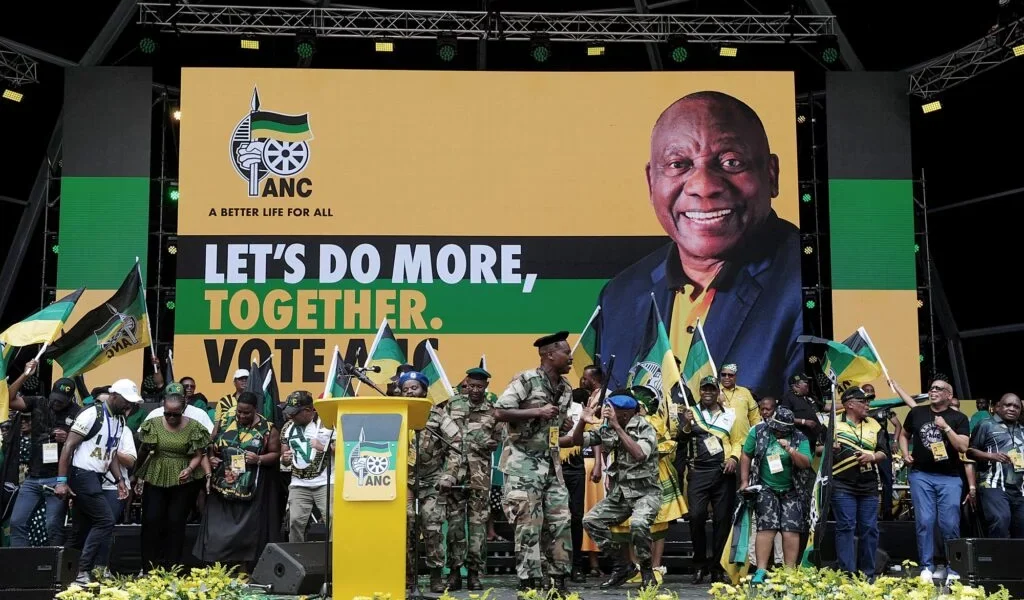
SOUTH Africa is poised for a significant electoral milestone on May 29, three decades after the end of apartheid, as the nation prepares to vote amid widespread discontent over economic inequality and the performance of the ruling African National Congress (ANC).
Since its historic ascent to power led by Nelson Mandela, the ANC pledged to uplift the lives of black South Africans after enduring decades of institutionalised racial segregation. However, thirty years on, the country grapples with one of the world’s most severe income disparities.\
The ANC’s once-unchallenged dominance faces a formidable test in this election, with polls signalling a potential loss of its majority. While the party downplays the need for a coalition, public sentiment suggests otherwise.
‘I don’t want to even talk to the ANC,’ remarked Dalene Raiters, a 48-year-old unemployed resident of Johannesburg. ‘Mandela’s dream is not their dream.’
Like many South African families, Dalene’s household relies on grants and community support to make ends meet, underscoring the strain felt by millions amid economic hardship.
President Cyril Ramaphosa defends the ANC’s record, emphasising the country’s robust welfare system as an investment in the future. However, public support wanes as over a third of the population, approximately 24 million people, require social assistance amid economic turmoil.
The ANC’s economic policies, once celebrated for their promise of prosperity, have been criticised for benefiting a privileged few while leaving the majority mired in poverty and unemployment.
According to the South African Institute of Race Relations, the ANC’s approach ‘disincentivises employment, growth, and investment,’ necessitating a shift toward alternative solutions.
The party’s approach to economic challenges has diverged from the vision of former president Thabo Mbeki, who viewed the welfare system as a catalyst for inclusive economic growth. But according to Michael Sachs, an economist at the Southern Centre for Inequality Studies, ‘If those social problems continue to mount and the only answer of the government is to provide more social grants, then eventually it will become unsustainable.’
Looking ahead, South Africa’s economic trajectory could hinge on potential coalition partners for the ANC. The Democratic Alliance (DA), the largest opposition party, advocates for job creation and economic reform, presenting an alternative path from ANC policies.
However, the possibility of a coalition with the DA remains uncertain given ideological differences, with the opposition party critical of affirmative action and labour laws favoured by the ANC.
Meanwhile, concerns loom over potential collaborations with the Marxist Economic Freedom Fighters (EFF), led by Julius Malema, whose demands for radical economic reforms could reshape the political landscape.
As South Africa braces for this pivotal election, the outcome will not only determine the nation’s political direction but also its economic future, highlighting the urgent need for solutions to address entrenched inequalities and revive economic prospects for all citizens.













